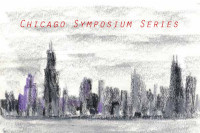Director of Center for Secondary Teacher Education
University of Delaware
Research in gender and education has evolved from a focus on issues of equity and access, to difference and intersectionality, and more recently subjectivity and identity. While science education research has continued its focus on access, difference, and identity, gender research within the field has become fused, and possibly lost, within other social categories. Furthermore, gender is ignored in studies of addressing students’ science conceptions, nature of science, teachers’ professional development or examining teachers’ pedagogical content knowledge.
Concurrently, development of feminist theory was restricted by its assumption that language constructs reality, a practice that ignored matter and the material in culture and social practice. Material feminism produces new knowledge about humans’ engagement with the natural and physical world, the agentic nature of matter and the socio-cultural context, the entanglement of the material, such as bodies and learning spaces, and time. This presentation discusses how science education research has limited impact on addressing equity and how (new) material feminism may offer a framework for researchers to engage with the material and materiality. By making matter matter, science educators could consider how technology, history, physical space, apparatus and other phenomena influence their research and the interpretation of that research.
Kathryn Scantlebury is a professor in the Department of Chemistry and Biochemistry at the University of Delaware and Director of Secondary Education in the College of Arts and Sciences and a visiting research professor at the Center for Gender Research at Uppsala University in Sweden. She taught high school chemistry, science and mathematics in Australia before completing her doctorate at Purdue University. Her research interests focus on gender issues in various aspects of science education, including urban education, preservice teacher education, teachers’ professional development, and academic career paths in academe. Scantlebury is currently a co-editor for Gender and Education and a lead editor for Cultural Studies of Science Education. Her recent publications include two edited books, Material practice and materiality: A re-introduction into science education and Turning feminist theory into practice: Enacting material change in education. She served as the Research Director for the National Science Teachers Association (2011-2014) and is a Fellow of the American Association for the Advancement of Science.

